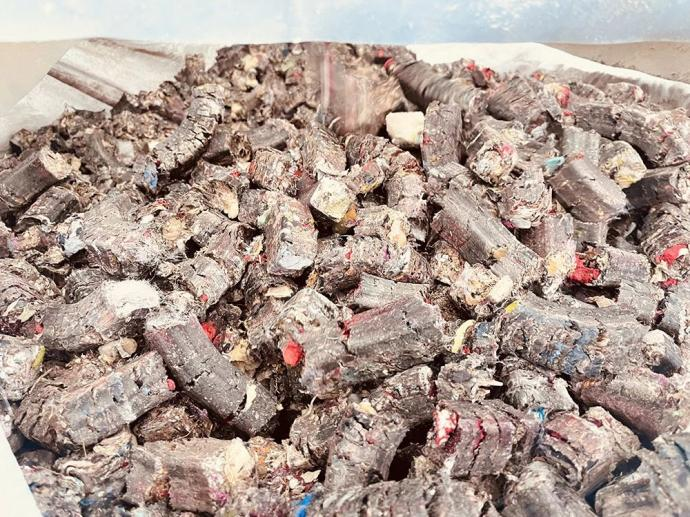

Dec . 13, 2024 10:39 Back to list
Understanding the Importance of Ferrous Shredders in Metal Recycling
In today’s world, recycling has become an indispensable part of our waste management and environmental sustainability strategies. Among various recycling processes, the shredding of ferrous metals plays a crucial role in ensuring these materials can be efficiently reused and repurposed. Ferrous shredders, specifically designed for processing iron and steel scraps, significantly contribute to the recycling industry by enhancing the quality and economy of metal recovery.
What are Ferrous Shredders?
Ferrous shredders are heavy-duty machines designed to break down and shred ferrous metals, primarily consisting of iron and its alloys. These machines use powerful rotating blades and high torque to pulverize large metal pieces into smaller fragments, making them easier to transport, sort, and recycle. Common applications for ferrous shredders include dealing with scrap from automobiles, machinery, appliances, and construction debris.
The Shredding Process
The shredding process typically begins with the collection of scrap metal. Once the ferrous materials are gathered, they are sorted to remove non-ferrous items and contaminants. This preliminary step ensures that only high-quality ferrous materials enter the shredder, maximizing efficiency and output.
After sorting, the ferrous materials are fed into the shredder, where they undergo intense mechanical stress. The blades rotate at high speeds, crushing and tearing the scraps apart. The resulting shredded material is usually smaller than conventional scrap size, which is crucial for downstream processing. This size reduction not only enhances the metal's marketability but also prepares it for melting and purification in steel mills.
Environmental Benefits

One of the most significant advantages of using ferrous shredders lies in their environmental impact. By shredding and recycling ferrous metals, we can reduce the amount of waste sent to landfills. According to the Steel Recycling Institute, recycling one ton of steel conserves approximately 2,500 pounds of iron ore, 1,400 pounds of coal, and 120 pounds of limestone. Additionally, recycling significantly reduces greenhouse gas emissions compared to producing new steel from virgin materials.
Moreover, the recycling of ferrous metals requires considerably less energy than producing new steel. This energy efficiency translates into lower operational costs for businesses involved in metal processing, making shredded ferrous materials economically attractive for manufacturing industries.
Economic Advantages
Ferrous shredders not only serve environmental purposes but also have substantial economic benefits. As the demand for recycled steel continues to rise, the recycling industry has seen significant growth. Shredded ferrous metals are often more appealing to steel mills because they contain fewer impurities, ultimately resulting in higher quality steel products. Businesses that utilize ferrous shredders can tap into this demand, contributing to their profitability while promoting sustainable practices.
Additionally, the increase in scrap prices over the years has led to more investment in shredding technologies. Companies are increasingly looking to upgrade their shredding equipment to process larger volumes of scrap efficiently. This trend is not just beneficial for individual businesses; it also stimulates local economies by creating jobs in the recycling sector.
Conclusion
Ferrous shredders play an essential role in the recycling chain. They not only enhance the efficiency of ferrous metal processing but also support environmental sustainability and economic growth. As society increasingly focuses on reducing waste and minimizing environmental impact, the importance of advanced shredding technologies will continue to rise. By investing in and leveraging ferrous shredders, industries can contribute to a more sustainable future while reaping the financial benefits that come with recycling. The role of ferrous shredders is not merely functional; it is transformative, turning waste into valuable resources and leading the way towards a circular economy in the metal industry.
In summary, the landscape of metal recycling is changing, and ferrous shredders stand at the forefront of this evolution, driving innovation, efficiency, and sustainability. As we move further into a resource-conscious era, the significance of these machines will only grow, reinforcing their status as a cornerstone of modern recycling processes.
Latest news
Troubleshooting Common Eddy Separator Problems
NewsJul.04,2025
The Role of Metal Recycling Plants in Circular Economy
NewsJul.04,2025
The Impact of Recycling Line Pickers on Waste Management Costs
NewsJul.04,2025
Safety Features Every Metal Shredder Should Have
NewsJul.04,2025
How Industrial Shredders Improve Waste Management Systems
NewsJul.04,2025
How Cable Granulators Contribute to Sustainable Recycling
NewsJul.04,2025